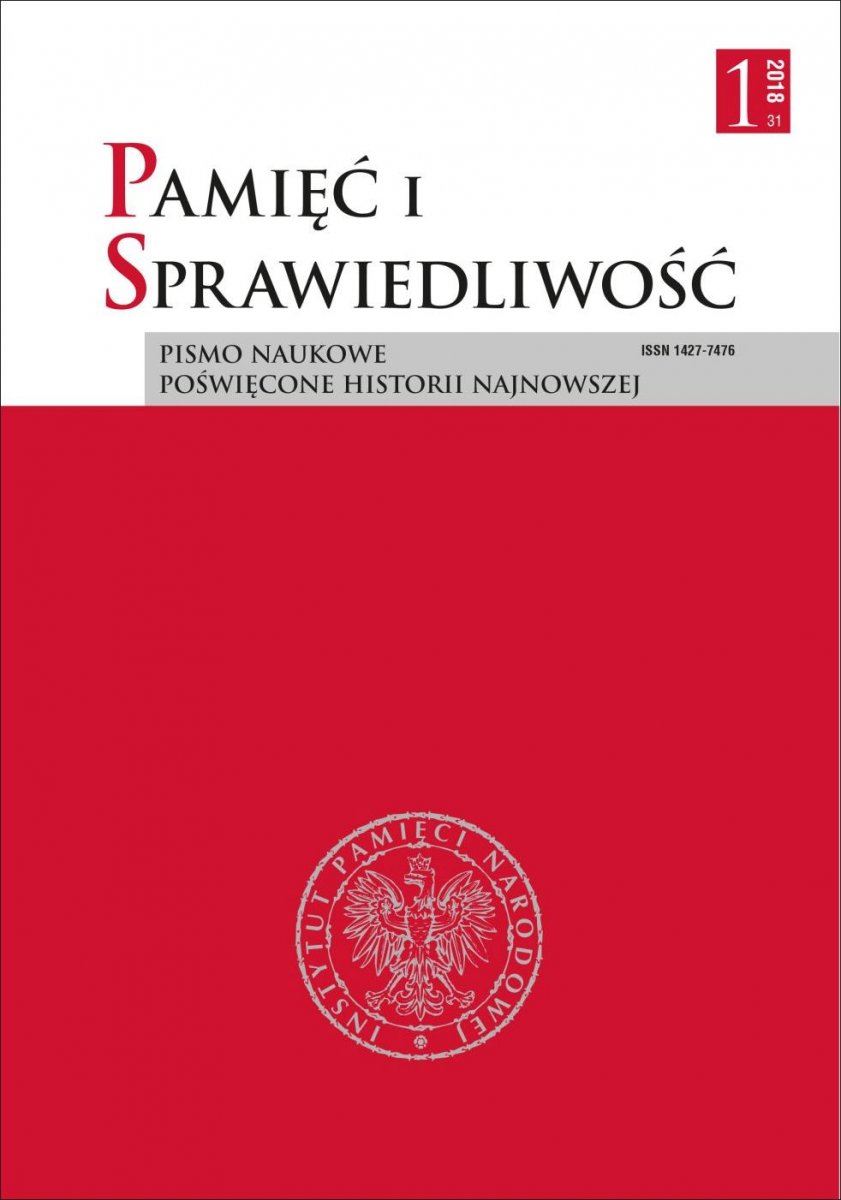Polityka zasad i celów. Polski obóz narodowodemokratyczny w Rosji w latach 1917–1918
Pamięć i Sprawiedliwość, Bd. 31 Nr. 1 (2018), pages: 113-121
Publication date: 2018-06-30
Abstract
Literaturhinweise
Tarasiuk D., Polski obóz narodowy w Rosji w latach 1917–1918, Lublin 2014.
Akt 5 listopada 1916 roku i jego konsekwencje dla Polski i Europy, red. J. Kłaczkow, K. Kania, Z. Girzyński, Toruń 2016.
Toporowicz W., Komisja Likwidacyjna do spraw b. Królestwa Polskiego w 1917 r., „Z Dziejów Stosunków Polsko-Radzieckich” 1972, t. 9.
Wandycz P., Odezwa Rządu Tymczasowego z marca 1917 r. a interwencja angielska, „Zeszyty Historyczne” (Paryż) 1969, t. 15.
Andrzejczak M., Rosja w myśli politycznej Narodowej Demokracji w latach 1917–1939, Krzeszowiec 2016.
Matwiejew G.F., Fiewralskaja riewolucyja w Rossii i polskij wopros [w:] Riewolucyonnaja Rossija 1917 g. i polskij wopros. Nowyje istoczniki, nowyje wzglady. Sbornik statiej, red. M. Wołos, A. Oriechow, Moskwa 2009.
Pajewski J., Odbudowa państwa polskiego 1914–1918, Poznań 2005.
Wapiński R., Narodowa Demokracja 1893–1939. Ze studiów nad dziejami myśli nacjonalistycznej, Wrocław 1980.
Wojdyło W., Mediacja jako forma regulacji konfliktów politycznych w koncepcjach Stanisława Grabskiego [w:] Polska i Polacy. Studia z dziejów polskiej myśli i kultury politycznej XIX i XX wieku, red. M. Mroczko, Gdańsk 2001.
O niepodległą i granicę. Komitet Narodowy Polski. Protokoły posiedzeń 1917–1919, oprac. M. Jabłonowski, D. Cisowska-Hydzik, Warszawa–Pułtusk 2007.
Dokumenty i materiały do historii stosunków polsko-radzieckich, t. 1: Marzec 1917 – listopad 1918, oprac. W. Gostyńska et al., Warszawa 1962.
Drozdowski M., Władysław Grabski, Rzeszów 2002.
 Język Polski
Język Polski
 English
English
 Deutsch
Deutsch
 Français (France)
Français (France)
 Italiano
Italiano
 Русский
Русский


 PDF (Język Polski)
PDF (Język Polski)
